Before he died Ieyasu Tokugawa, the founder of the Tokugawa Shogunate, requested that a simple shrine be built for him so that he could serve as a guardian kami for the Japanese nation. The shrine was eventually built by his grandson Iemitsu, the third Tokugawa Shogun, but it was anything but simple. Most Shinto shrines are unpretentious, even austere. This is the most ornate Shinto shrine in Japan.
Ieyasu is still revered because he brought an end to a long series of bloody civil wars and began a period of peace an prosperity that lasted more than 250 years.
At the entrance to every Shinto shrine there is a torii that marks the beginning of sacred space. Everyone who enters is supposed to pass under this gate to purify their souls.
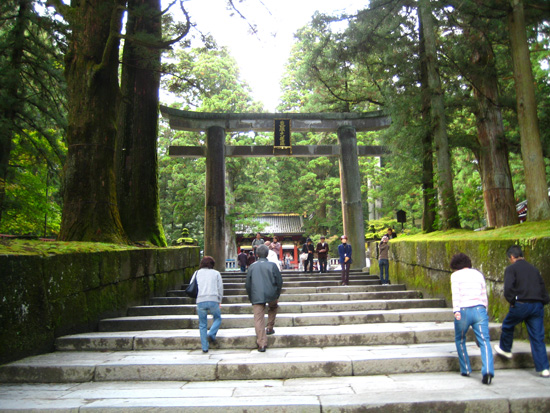
Behind the torii is a Buddhist-style gate with guardian figures.
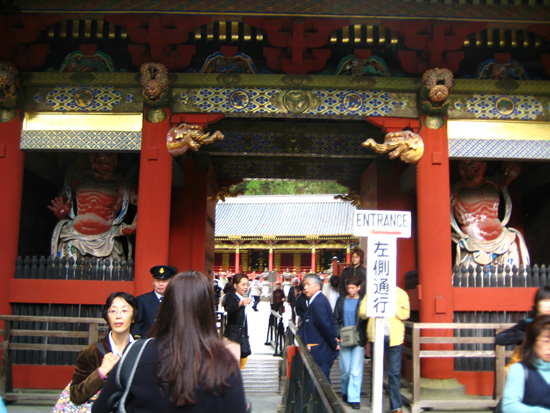
Inside this gate is a courtyard with elaborately decorated buildings.
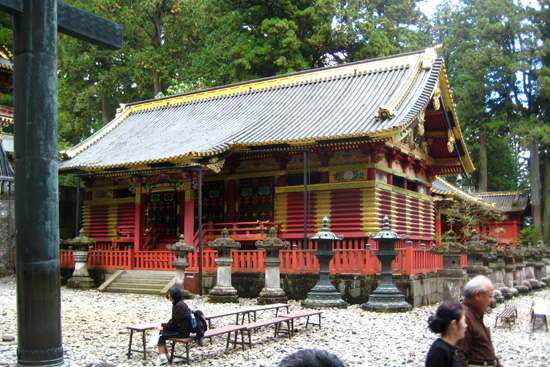
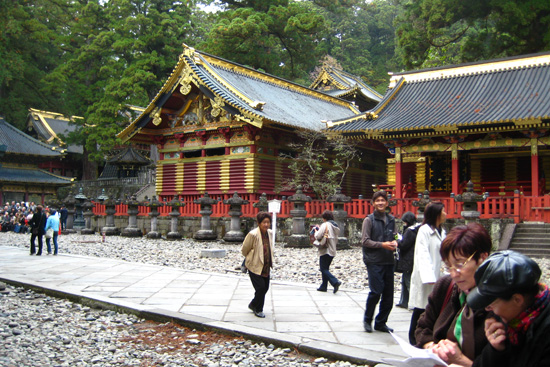
A miko addresses a group of visitors.
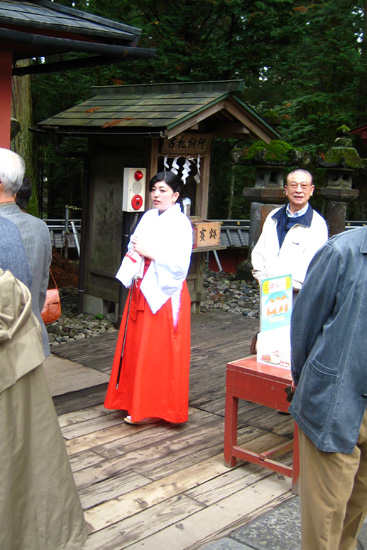
On the Sacred Stables there is a famous carving of the Three Wise Monkeys.
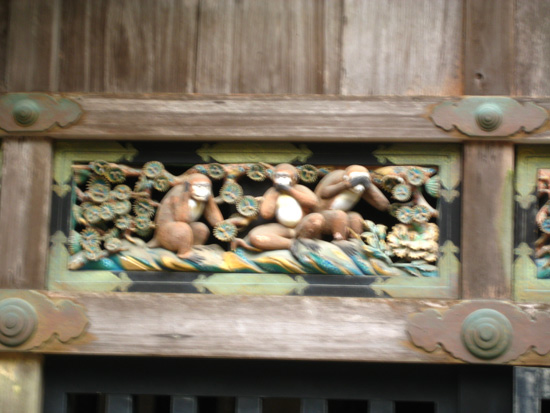
But this is only the outer courtyard. Before the inner part of the shrine there is another torii, emblazoned with the three-leaf crest of the Tokugawa clan.


Next we come to the famous Yomeimon or “twilight gate”, so-called because anyone of sufficient artistic sensitivity should want to stay there and admire it until the sun sets.
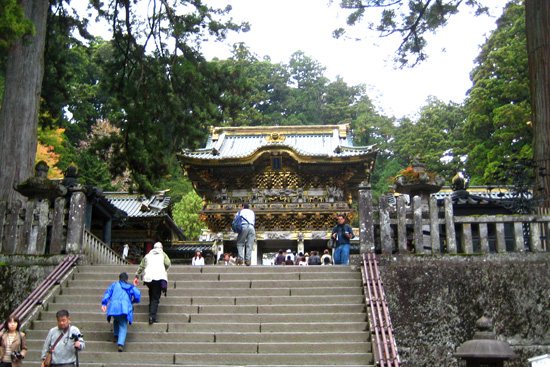

You can’t really see it in the picture, but the left-most pillar has its pattern carved upside down. It was important that the gate not be absolutely perfect, because a civilization that has achieved perfection has nowhere to go but down.

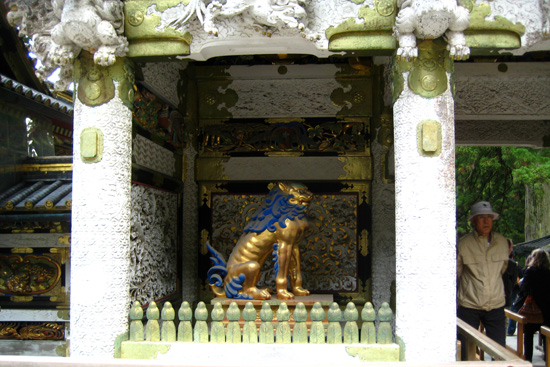
Inside is an inner courtyard.

And an innermost shrine building, inside of which no photos are allowed. (The inside is comparatively spare and functional.)

Right next door is the smaller and much older Futarasan Shrine, founded by Shodoshonin to honor the spirits of the three largest local mountains.
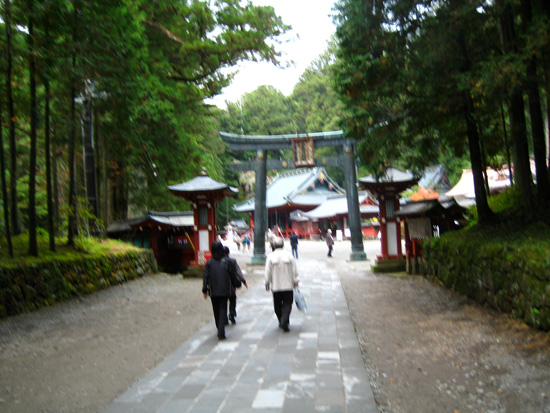
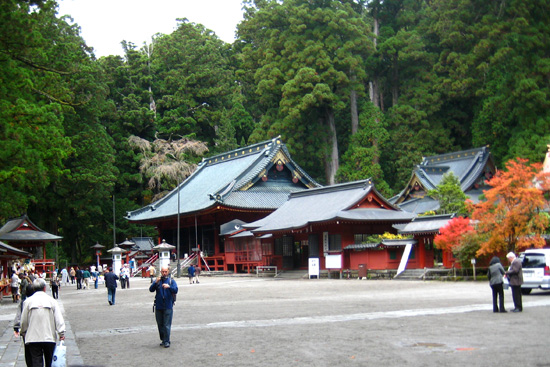

It is customary for shrines to display the barrels of sake donated by local brewers.


